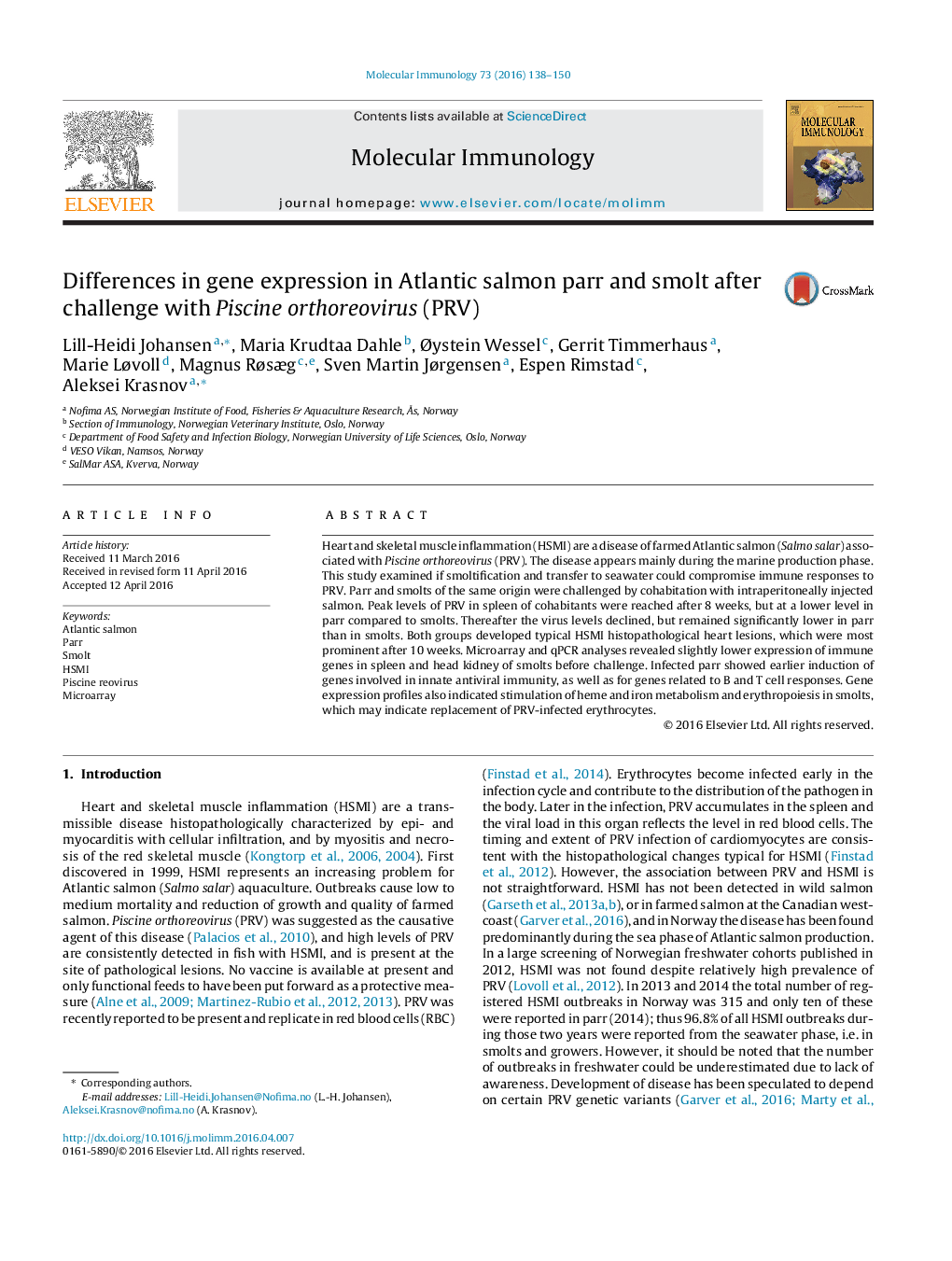| Article ID | Journal | Published Year | Pages | File Type |
|---|---|---|---|---|
| 5916332 | Molecular Immunology | 2016 | 13 Pages |
Abstract
Heart and skeletal muscle inflammation (HSMI) are a disease of farmed Atlantic salmon (Salmo salar) associated with Piscine orthoreovirus (PRV). The disease appears mainly during the marine production phase. This study examined if smoltification and transfer to seawater could compromise immune responses to PRV. Parr and smolts of the same origin were challenged by cohabitation with intraperitoneally injected salmon. Peak levels of PRV in spleen of cohabitants were reached after 8 weeks, but at a lower level in parr compared to smolts. Thereafter the virus levels declined, but remained significantly lower in parr than in smolts. Both groups developed typical HSMI histopathological heart lesions, which were most prominent after 10 weeks. Microarray and qPCR analyses revealed slightly lower expression of immune genes in spleen and head kidney of smolts before challenge. Infected parr showed earlier induction of genes involved in innate antiviral immunity, as well as for genes related to B and T cell responses. Gene expression profiles also indicated stimulation of heme and iron metabolism and erythropoiesis in smolts, which may indicate replacement of PRV-infected erythrocytes.
Related Topics
Life Sciences
Biochemistry, Genetics and Molecular Biology
Molecular Biology
Authors
Lill-Heidi Johansen, Maria Krudtaa Dahle, Ãystein Wessel, Gerrit Timmerhaus, Marie Løvoll, Magnus Røsæg, Sven Martin Jørgensen, Espen Rimstad, Aleksei Krasnov,
